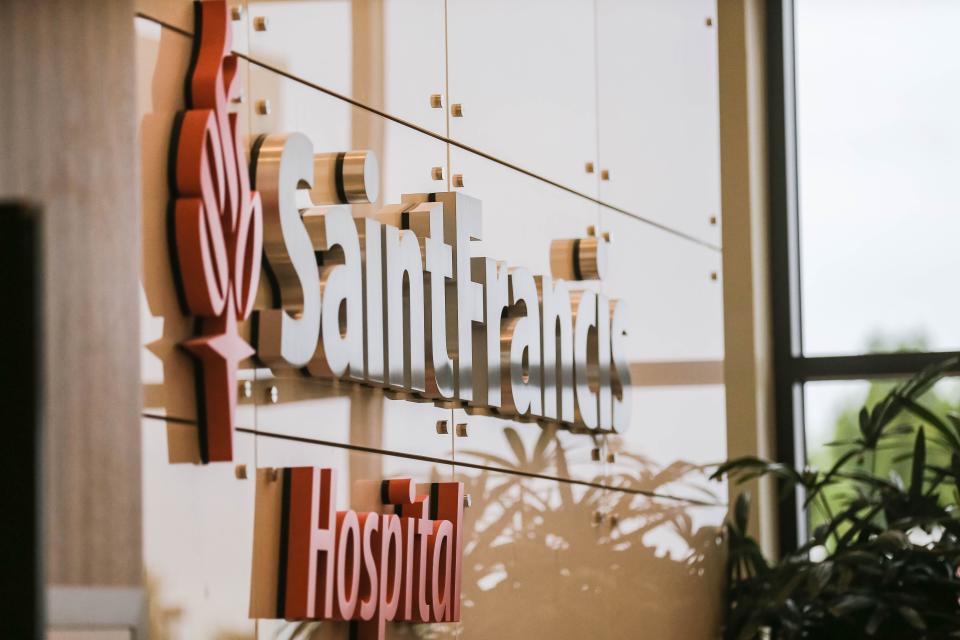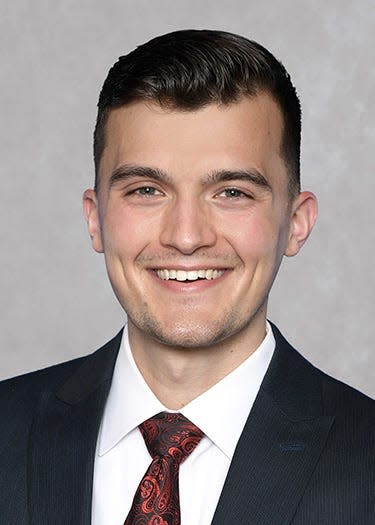Oklahoma medical student reacts to Tulsa shooting: 'I feel unsafe to practice medicine here'
In Oklahoma, it is officially easier to purchase a firearm in order to murder a physician than it is to obtain the health insurance necessary to be seen by a physician in a clinic.
On June 1, a disgruntled patient carried an AR-15 style rifle into a building at Saint Francis Hospital in Tulsa, where I rotated as a medical student. Among others, he deliberately killed Dr. Preston Phillips, a Harvard-trained orthopedic surgeon who was an active member in the community and beyond, so far as having a hospital named after him in Togo for his volunteer service there. His killer blamed Dr. Phillips for not adequately treating his pain after spine surgery earlier in May. The day after a clinic visit with Dr. Phillips, the shooter purchased the semi-automatic weapon mere hours before returning to the Saint Francis campus, where he instigated the 233rd mass shooting this year in the U.S.
When I heard the news about another mass shooting event, this time in my own community, I was heartbroken though unsurprised. As of today, the U.S. has averaged more than 1.5 mass shooting events per day in 2022. Mass shootings have become commonplace occurrences in our country, arguably a shameful yet defining feature of contemporary American culture. We have not had the adequate time to grieve the atrocious shootings and lives stolen at an elementary school in Uvalde, Texas, at a supermarket in Buffalo, New York, and in at least 10 other cities over Memorial Day weekend, according to The Washington Post. Even more sadly, we have become desensitized to such tragedy, even when it is within our own community.
A doctor who loved jazz, a mother of two: What we know about the Tulsa shooting victims

However, when I heard that the event took place at a hospital, with the aggressor specifically targeting his physician, I became outraged. In the wake of the national opioid crisis, Dr. Phillips likely did his due diligence to properly care for his patient by avoiding possibly life-threatening and incredibly addictive pain medications. And this physician was murdered for merely doing his job. Furthermore, his colleague, Dr. Stephanie Hansen, the clinic receptionist Amanda Glenn and even another patient William Love — who sacrificed his life to save his wife — were all murdered, as well.
I am well aware and thankful for the many responsible gun owners in our state. However, the prevailing notion that “nothing could have been done to prevent” the mass shootings in our own community and in so many others is simply untrue.
Every state requires licensure and passing an exam to operate an automobile. Background checks are required to be employed in countless professions, such as schoolteachers, nurses and so forth, in which abuses of power are possible. Requiring a “wait period” is already required by insurance companies and Medicare before various medical procedures, such as bariatric surgery and sterilization.
Basic regulations such as these are common sense measures that are already used successfully in so many arenas. Moreover, these specific measures when used to restrict access to firearms have already been proven in studies to reduce the number of deaths by gun violence and would not strip responsible gun owners of their firearms. Evidence-based measures such as licensure, universal background checks and mandatory wait periods are supported by the American Academy of Pediatrics, the American Academy of Family Physicians, the American College of Physicians, the American College of Emergency Physicians, the American Psychiatric Association, the American College of Obstetrics and Gynecology, and the American College of Surgeons, among dozens of other organizations in the recognition of gun violence as a national public health crisis requiring intervention.
We live in a state that has suffered from severe physician shortages for decades. This has been a frequent conversation in my medical education, which has specifically focused on reducing the health disparities experienced by Oklahomans. The continued, deliberate inaction of our elected officials to intervene in any way on gun violence will only continue to disincentivize the physicians we desperately need from practicing medicine in Oklahoma.
More: How to help Tulsa shooting victims, families
Anyone can provide “thoughts and prayers.” Our elected politicians were put in office to do more through policy action. I sincerely hope to practice medicine in Oklahoma one day. Yet, I feel unsafe if I were to stay here for the immediate future. Today, I am thankful for the opportunity to leave our state for residency training to live and work somewhere else where I will have the ability to focus on learning to practice quality medicine with less fear for my own safety.
It is unacceptable for physicians to fear for their lives when simply providing standard practices of medical care. The simple solution is that we must keep our state leaders responsible for doing something. Continued inaction will cause permissive violence in our communities and create a hostile environment not only to physicians, but all medical professionals as well as every patient we care for. Simply doing nothing is never the answer in the wake of tragedy. Though, as a life-long Oklahoman, I am pessimistic that any of our elected officials will take action unless we otherwise keep them responsible ourselves.
To my fellow healthcare workers and to all my other neighbors alike, I urge you to watch what your legislators do in the coming weeks and vote like your life depends on it in November. Now more than ever, it does.

Dr. Auston Stiefer is a native Oklahoman who recently graduated medical school and will begin residency training at Duke University Medical Center later this month.
This article originally appeared on Oklahoman: Tulsa shooting opinion: Health workers shouldn't have to fear for lives

